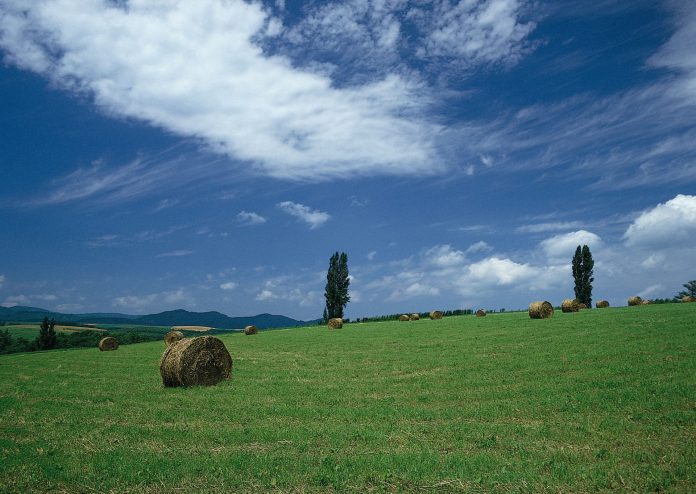The Kakazai (Pashto: کاکازي / ککےزي / ککازي, Urdu, Persian: کاکازَئی / کَکےزَئی / کَکازَئی),also known as Loi or Loye Mamund (Pashto: لوی ماموند; Urdu: لو ئے / لوئی مَاموند), a division of the Mamund clan, are part of the larger Tarkani (ترکاڼي) tribe who are primarily settled in Bajaur Agency, Pakistan, but originally hailed from the Laghman province of Afghanistan. However, it has grown and scattered around to such an extent that it is recognized as tribe of its own.
Etymology
The name “Kakazai” means “descendants/offspring/children of Kaka (کاکا / ککا)” (in Pashto, Kaka literally means Uncle and used to address an elderly person as well as Paternal Uncle whereas Kakae = a contemporary but obsolete Afghan name for a male. Zai (Pashto: زي, Urdu, Persian: زَئی) = descendants/offspring/children of, a root also used in other Pashtun tribes such as Yousafzai). Given that Mamund, the father of Kakazai, had two sons: Kakazai and Wur or Wara (Urdu: وڑ / ووڑ , Pashto: ووړ), meaning small, little or minor, also known as Wur Mamund or Wara Mamund (Urdu: بڑو / ووڑو مَاموند , Pashto: واړه / وړہ مَاموند), meaning small, little or minor Mamund or descendants/offspring/children of small, little, minor Mamund, thus, in this particular case Kakazai means descendants/offspring/children of the elder person/brother hence also known as Loi Mamund (Pashto: لوی ماموند; Urdu: لوئی / لوئے مَاموند), meaning great, large, huge, big Mamund or descendants/offspring/children of great, large, huge, big Mamund. Spelling variants include: Kakizi, Kakaezai, Kakezai, Kakaizai, Kakay Zai, Kakayzai, Kakeyzai, Kaka Zai and Kakkayzai.
Early History
The Kakazai, along-with other Pashtun tribes, came to South Asia during invasions such as those of Mahmud of Ghazni and Bahlul Lodi, settling in various regions.
Noting the martial legacy of the Kakazai Pashtuns, Pir Moazzam Shah in his book ‘Tawareekh-e-Hafiz Rahmat Khani’ (Page 89-91 – Originally Published in 1624 AD) and Olaf Caroe in his book ‘The Pathans 550 BC-AD 1957’ (Page 184-185 – First published in 1958), wrote about a battle between the Yousafzais and the Dilazaks in which Malik Haibu (Dilazak) was given the first sword blow by Payenda Kakazai Tarklanri but eventually got beheaded by Burhan Kakazai Tarklanri sword blow while fighting on the side of the Yousafzais in order to aid them to conquer Bajour from the Dilazaks.
For the invading armies, much of Punjab and other areas became a repository with rest houses, cantonments and border posts established to keep an eye on things in the region as well as to keep abreast of any new information (such as the possible weakening of another empire etc.), and many officers along with their families would settle there. As is still very true in large areas of Khyber Pakhtunkhwa and Afghanistan‘s Pashtun belt, the land is often quite barren and hostile only capable of hosting a limited population. Once the population or a tribe’s numbers exceeded a certain threshold, they would often travel East to more settled areas (Sindh, Punjab, Kashmir etc.) or would be pushed out by other tribes in the search of productive agricultural land. The area of Sialkot principally, as well as Faisalabad, Wazirabad and parts of Lahore, had much productive agricultural lands and were ruled by a series of Pashtun families many of whom were Kakazai but also Burki and Niazi Pashtuns.
British-Raj Era
Many Kakazai, Burki and other notable Pashtun families had previously settled in Jalandhar and Gurdaspur districts of Pre-independent British India where they had set up colonies. A major Kakazai group from Gurdaspur, East Punjab, India settled in twelve villages, including Babal Chak, Faizullah Chak, Sut Kohiah (Satkoha), and Wazir Chak, near Dhariwal. At the independence in August 1947, having been initially told they (being Muslim) would be in Pakistan, they were caught up in the ensuing violence and the survivors displaced when their area became part of India.
Modern era
Today, the majority of the Kakazai reside in Pakistan and Afghanistan.
In Afghanistan, they reside in Marawara District, and the Barkanai and Shortan areas of Kunar as well as some areas of Laghman.
In Pakistan, they reside in all provinces, particularly in the areas of Dara Kakazai (Valley of Watelai, also known as Mamund Valley), Bajaur Agency (Lagharai, Kalozai, Kaga, Mukha, Maina and Ghakhi areas of Mamund Tehsil), Peshawar, Lahore, Abbottabad, Sialkot (The Kakazai are still among the dominant tribes in Sialkot despite city’s cosmopolitan flavor, and are still the original owners of vast swathes of prime land in this district.), Dera Ghazi Khan, Quetta, Karachi, Kashmir, Jehlum, Bhalwal, Sargodha, Chakwal, Gujrat, Chak Karal, Isa Khel, Musa Khel, and Killi Kakazai (Pishin, Baluchistan).
Consequently, the Kakazai Pashtuns not residing in Pashto-speaking areas, despite practicing Pashtunwali and maintaining dress, cuisine and martial legacy as per their Pashtun traditions, do not exclusively speak Pashto but may speak other languages indigenous to Pakistan such as Urdu, Punjabi, Siraiki, Hindko and Balochi.
Personalities
Sub-divisions of Kakazai Pashtuns
– Daulat Khel (دولت خیل)
– Khulozai (خلو زئی)
– Mahsud Khel (محسود خیل)
– Maghdud Khel (مغدود خیل)
– Mahmud Khel (محمود خیل)
– Umar Khel (عمر خیل)
– Yusaf Khel (یوسف خیل)
—-
For further information, please, visit:
Kakazai Pashtuns background in Urdu (Video)
Kakazai Pashtuns background in English (Video)
Kakazai Pashtuns background in Pashto (Video)
https://en.wikipedia.org/wiki/Kakazai (Wikipedia)
http://www.Kakazai.com/ (Official website)
http://www.flickr.com/photos/43961546@N00/ (Photostream about the Kakazai Pashtuns)
https://kakazai.com/library (Kakazai Pashtuns’ Virtual Library)
https://www.facebook.com/groups/Kakazai.Pashtuns/files/ (Kakazai Pashtuns’ Virtual Library @ Facebook)
—-
Please, join our
Kakazai Pashtuns (Official) LinkedIn Group at:
http://www.linkedin.com/groups?about&gid=3659808
Kakazai Pashtuns (Official) Facebook group at:
https://www.facebook.com/groups/Kakazai.Pashtuns/
Please subscribe to our Kakazai Pashtuns (Official) Newsletter at:
Sources:







